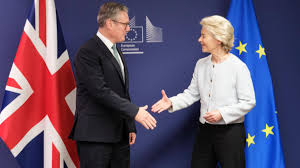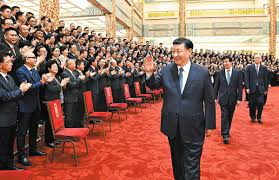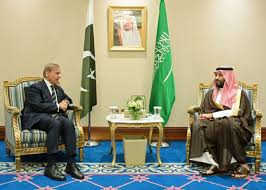Stand by me: Why EU trade actions need member-state consensus

Brussels: Since Donald Trump’s re-election, the EU has been remarkably active on the trade scene. The bloc’s member state capitals must commit to future deals to ensure that talks are followed by implementation
“Attack is the best form of defence” seems to be the European Commission’s approach to trade agreements since President Donald Trump was re-elected to the White House. In the two months since, commission president Ursula von der Leyen signed a landmark trade agreement with Mercosur, concluded negotiations on the modernisation of a deal with Mexico and restarted negotiations with Malaysia.
This proactive approach is the right course of action to safeguard European Union trade interests. But, if European economic security is best served by an open attitude to trade with the rest of the world, the EU has hardly ensured its member states are on board—demonstrated, for example, by France’s opposition to von der Leyen’s hasty flight to Uruguay to ink the Mercosur deal.
Support from member state capitals is necessary not only for procedural reasons (securing a European Council vote) but for political ones, too: the EU can only effectively deliver on trade deals when member states are on board. Without this support, the commission risks promising more than it can deliver.
The opposition faced by the EU regarding Mercosur demonstrates that the commission and member states need better coordination on trade negotiations. Although some European producers in the agricultural sector fear being undercut by cheap imports, these worries are often unjustified; the EU should not sacrifice its trade future to satisfy a few constituencies in the member states. Here, more buy in from capitals is necessary to ensure that trade talks are followed by implementation.
First, the commission should improve existing coordination and communication on trade negotiations to avoid member states openly criticising its moves. Second, national governments should not let the fear of voter backlash or the rise of the far-right hold European trade hostage.
Finally, to ensure the highest possible consensus among EU members, this ‘trade offensive’ strategy should primarily target countries that can effectively support European economic security objectives. This could mean diversification away from China towards countries such as Canada, India, Indonesia and Vietnam—targets which should also provide European industries with critical commodities or intermediate goods.
The shared fear of losing industrial bases in major EU economies and the necessity of opening new export destinations could secure broad support among EU capitals. At the same time, including compensation mechanisms to support those losing out from deals could overcome the resistances of more stubborn member states.
Global trade is turbulent and the EU cannot afford to renege on its pledges if it wants to win friends in the wider world.
However, once trade officials overcame the shock of Trump’s reelection, the EU grasped that expanding its partnership network is key to upholding free trade and securing access to foreign markets amid growing tariffs. This approach could prevent potential trade partners from adopting protectionist policies and partially compensate for others, like the United States, that might become less open to EU goods and services.
If the commission and EU member states maintain a high level of coordination and avoid counterproductive rifts over trade negotiations, Europe can rally countries globally to defend free multilateral trade and to strengthen its own economy. Failure to uphold this unity would be a devastating blow to the EU’s credibility as a trade partner.





